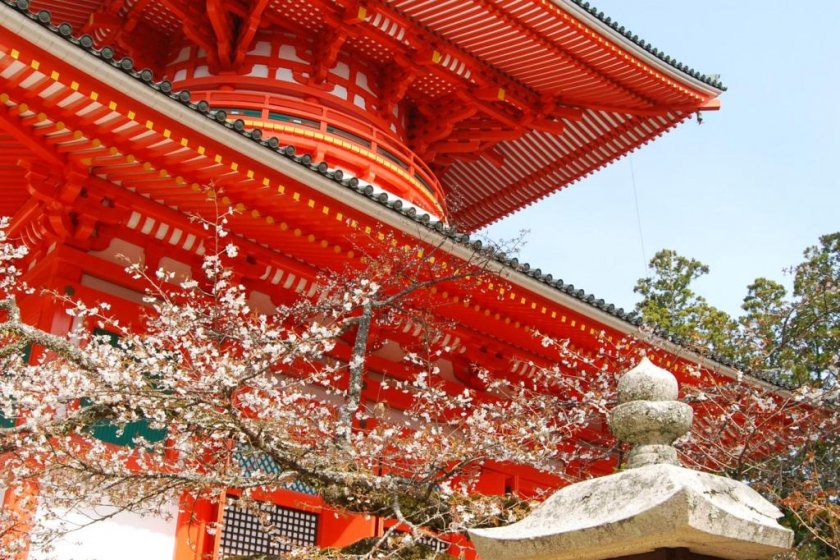Hidden away on a mountain plain that is surrounded by intensely forested 1,000 meter peaks, seemingly far away from the hustle and bustle of Japan’s cities, lies Mt. Koya, also called Koyasan.
This is the place where Buddhist monk Kukai, founder of the Shingon branch of Japanese Buddhism, established a mountain monastery in early 800.
Over 1,200 years later and Koyasan is still a thriving religious center. Located 2hr by train from Osaka, it is one of Japan’s Shangri-la not to be missed.
Devoted followers of Shingon Buddhism come on a pilgrimage or for religious training in one of Koyasan’s over 100 temples or at Koyasan’s very own university.
However, the spiritual atmosphere of this place attracts an eclectic crowd of people, Japanese and foreigners alike, who come to enjoy an overnight stay at a shukubo (temple lodging) and to soak up the mystical atmosphere of Koyasan’s two most sacred places, the Okunoin (“Inner Sanctuary”), a huge graveyard that is also home to Kukai’s last resting place, and the Danjo Garan (“Sacred Precinct”), a large compound of temples, halls and pagodas.
Although Koyasan is located within easy reach of Osaka, and a visit to this mountain monastery can be done as a day-trip, we highly recommend staying overnight in one of the temple lodgings where you will experience the monks’ warm hospitality.
They will invite you to attend some of their Buddhist prayer and meditation sessions, which are a rare chance to catch a glimpse into the monks’ daily prayer routine and into the practices of Shingon Buddhism, a branch of esoteric Buddhism.
The monks will also prepare some delicious monks’ food for you to enjoy as evening meal and for breakfast. Forget toast and coffee for once but start your day with some magic Buddhist chanting to warm your soul and a healthy special vegetarian diet to fill your belly.
If you need one more reason to schedule Koyasan in on your trip to Japan, then you might be interested to know that since 2004 Koyasan is a UNESCO World Heritage Site, together with two other sites also located on the Kii Peninsula.
The UNESCO designated these sites as “Sacred Sites and Pilgrimage Routes in the Kii Mountain Range”. Whatever you come for, you will find a special place that touches your heart and makes you come back time and again for a retreat from busy city life.





























